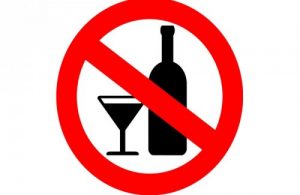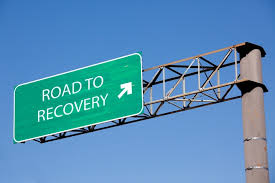Was Hegseth Acting in a Blackout?
Sunday, July 20th, 2025Addiction and Recovery
By Bob Gaydos
Did Pete Hegseth recently order the cutoff of some military aid to Ukraine while he was in an alcohol-induced blackout? I posited the possibility at the tail end of a recent column about all the screwups in the Trump administration. The comment was made partially in jest, but the more I thought about it, the more serious it became a possible reality.
Did the secretary of defense of the United States of America make a life-threatening military decision while he was in an alcoholic blackout? Does anyone else wonder about that? If so, I haven’t heard or read about it. Given Hedgseth’s much-publicized reputation as a heavy drinker/alcoholic/drunk, it seems to be an important question. At least to me.
If you remember the July 7 press conference, Trump was asked who ordered the cessation of delivery of certain types of weapons, mostly missiles, to Ukraine. His answer was, “I don’t know. Why don’t you tell me?“
To me, a shocking response from the commander-in-chief. Later, cameras caught Trump, leaning over to Hegseth and whispering, “Do you know?“
A poker-faced Hegseth answered, “No.”
But really, how could he possibly not know? It’s his job to know. It’s his job to make recommendations of this kind of action to the president. Yet it happened and neither man knows why.
So. I suggest one man hardly ever knows why decisions like this are made and the other man was possibly in an alcoholic blackout. I’ll set aside the obvious social and political implications of this for now and talk a little bit about blackouts.
There are two enduring views about alcohol-induced blackouts:
- They don’t exist. They’re just an excuse for inappropriate behavior.
- They exist, but they’re just a harmless, often humorous, occasional price to pay for a night of fun.
Both views are wrong — dangerously so — for the same reason: Denying the existence of blackouts or minimizing their significance could lead to serious consequences (health, legal, personal, professional) for the persons experiencing them and others. If you’ve experienced blackouts or know someone who has and are not concerned about them, you should be.
To start with, blackouts are not the same as passing out. That’s a common misconception. People who drink too much and pass out stay put. They wake up in the same place they passed out and remember, maybe with a hangover, how they got there.
People in blackouts can wind up in different states, strange beds, wrong apartments or behind bars when they come to and not know how they got there.
“How did I get home last night?” is a common question for blackout veterans. “Where’d I leave my car?” is another.
Many recovering alcoholics who recall their drinking history in Alcoholics Anonymous meetings point to blackouts as one of the “healthy fears’’ that help them stay sober. After all, it can be frightening to find out about some reckless behavior that happened apparently in a blackout and to wonder what else may have happened without your being aware of it.
Some volunteered local examples:
— Jordan, a mid-50s man from Orange County, who has been sober more than ten years, says he once spent a four-day business trip in Texas in a blackout. Airport-to-airport. He did come out of it briefly, he says, to call his boss on Day 2 to tell him he wasn’t feeling well.
— Whitey (all names used are fictitious), who drives for a living, says he regularly drove routes between New York and Virginia in blackouts.
— John, retired in Sullivan County and sober more than three decades, says he’s positive he was fired from an excellent job because of remarks he made to his boss’s wife while in a blackout. “Why did you say those things?” No memory of it.
— Sunshine, a nurse sober half her life, recalls with a mix of horror and shame coming out of a blackout “as a guy was trying to have sex with me.” She says she fought him off. But she didn’t immediately stop drinking.
That’s often the case — not stopping drinking despite risky or embarrassing consequences. As an isolated incident, a blackout may not signify anything except drinking too much, too fast. Something you might want to avoid because of potential embarrassment or worse. As a pattern, it could be a sign of a more serious problem.
While it’s not just alcoholics who experience blackouts, the connection between blackouts and alcoholism or alcoholic use disorder is real and knowing some facts about the symptom could help dispel some of the myths and avoid more serious problems.
For a long time — most likely from whenever humans first discovered the mood-altering effects of wine until modern science started doing research on the brain and behavior — blackouts were regarded as just one of the possible side effects of drinking alcohol. A little fuzzy memory. No big deal. Just drink less.
When researchers began studying blackouts, however, they soon discovered that persons experiencing them didn’t have just a little amnesia. Rather, they had no recollection of certain events and, try as they might, even when told the details many times over, they had no memory of them. Their subjects didn’t forget, researchers concluded; they never formed a memory in the first place.
The prevailing accepted science, as cited by the National Institute on Alcoholism and Alcohol Abuse and other similar agencies, is that persons experiencing a blackout can function and appear to be “normal” to others because their brain is operating on stored, long-term, procedural memory, but the short-term memory of what they are experiencing never gets to the hippocampus, the part of the brain that processes long-term memory.
Alcohol — especially a lot of it in a short period of time — short-circuits the process. According to the NIAAA, “As the amount of alcohol consumed increases, so does the magnitude of the memory impairments. Large amounts of alcohol, particularly if consumed rapidly, can produce partial or complete blackouts.”
More about blackouts:
— It’s not what you drink, it’s how much alcohol gets into your bloodstream and how fast it gets there. This means it’s possible for anyone to black out if he or she drinks enough alcohol quickly enough.
— People who have a low tolerance for alcohol are not necessarily more likely to black out. On the other hand, those with a high tolerance for alcohol are often able to drink heavily and carry on conversations, drive, etc. while in blackouts.
— Women may be more susceptible since they tend to be smaller than men, meaning each drink has a greater effect on the body’s blood alcohol content.
— Drinking on an empty stomach can make blackouts more likely, again because of a more acute impact on the blood alcohol concentration.
— People sometimes have glimpses of memory of an event, but not total recall. These partial lapses are called “brownouts.”
— Blackouts are the product of consumption of an amount of alcohol that affects motor coordination, balance, impulse control and decision-making. This is bad enough when someone is not in a blackout, never mind being unable to recall any risky, self-sabotaging behavior that may have caused serious harm to others.
— Some researchers suggest that people in blackouts, operating on procedural memory and little more, have little impulse control and are more likely to do things they would not otherwise. (See examples above.) This presents embarrassing, sometimes dangerous situations for the person in a blackout, family, friends and even strangers.
— Blackouts are often the unrecognized explanation for someone’s uncharacteristic actions. “Why did you (say/do) that last night?”
— Because of a shortage of evidence-based science on the subject, there is considerable difference of opinion on the use of blackouts as a defense in criminal trials.
So, what to do if you have blackouts? Take them seriously. Maybe talk to a professional health provider who knows about them. While blackouts are not solely the result of years of heavy, alcoholic drinking, they can be a sign of an existing or potential alcohol problem. Even one or two — perhaps the product of binge drinking in college — should be enough to cause concern since not being aware of what one has done is not considered acceptable to most people.
For example, possibly cutting off significant weapons shipments to a country in the middle of a war without checking with your commander-in-chief.
Again, just asking.






